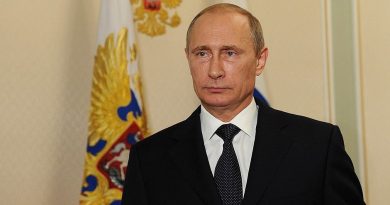Germany’s Tumultuous Political Landscape
Elizabeth Denton
Staff Writer
On February 25, Germany held a snap national election causing game-changers for leading political parties and showing a grim future for immigrants and asylum seekers.
Germany’s conservative, center-right Christian Democratic Union (CDU) won the most votes in the national election confirming Friedrich Merz to be the next chancellor. While the election was chaotic on its own with the abrupt loss of a vote of faith of the last chancellor, Olaf Scholz of the Social Democratic Party, it took place against a backdrop of uncertainty over Ukraine and Europe’s alliance with the United States. According to The Independent, the conservative group won 208 of the 630 seats in Bundestag, the far-right Alternative for Germany (AfD) won 152, with the Social Democrats winning 120 and the Left party 64 seats. On election night, Merz stated he hoped to form a government by Easter, previously ruling out a coalition with the AfD.
One of Merz’s promises was to unite Europe in the face of upcoming challenges dealing with Russia and the U.S., reports The Associated Press. Vowing to do everything in his power to continue good transatlantic relationships, Merz warns against the U.S. making a deal with Russia without consulting European countries.
Recent fears of rising far-right sentiment sat at the center of the election, specifically surrounding the Alternative for Germany (AfD). The AfD is known for its anti-immigration views. Germany previously maintained an open-door policy for migrants with former Chancellor Scholz’s government easing the process to acquire residency and citizenship, but Merz proposed a non-binding resolution to turn back asylum seekers at the borders, which passed with AfD support. This resolution came in January, following one of the deadly attacks rocking the country, according to Al Jazeera. Parliament rejected Merz’s binding version of the anti-migration bill.
During the campaign trail, American billionaire Elon Musk voiced his support for AfD. His support sparked debate in Germany about how it remembers its 20th century history, reports CNN. The former chancellor found Musk’s support for the far-right party unacceptable. The AfD is likely to become the second largest political group in the country, which would be the first time a far-right party has reached such popularity since the Nazi era.
The party calls for a remigration policy, including mass expulsion of immigrants. Due to this as well as other controversial policy opinions, the AfD is officially suspected of right-wing extremism by authorities and according to CNN, parts have been under German government surveillance.
The AfD has doubled its support in the past four years, spreading from east Germany to beginning to set bases of support in west Germany, according to BBC News. However, while the AfD is gaining popularity it is blocked from being part of the next government by a “firewall” held by Germany’s main parties, who do not cooperate with parties viewed as extremist since the end of World War II.
The AfD is not the only party to have experienced a change in popularity. Former Chancellor Scholz’s party, the Social Democratic Party, experienced a sharp decline. The party had its worst performance in the past few decades, only winning 16.4 percent of the vote.
Image courtesy of Getty Images.


